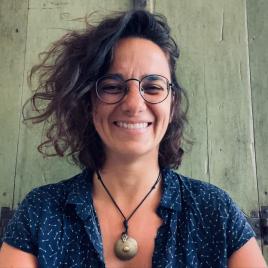The CADOS Interdisciplinary Writing Training (IWT) is an eight-week virtual course directed to up to 20 PhD students and post-doctoral fellows of any program of the Universidade Católica Portuguesa who have ongoing writing projects, including (but not limited to) their dissertations. While encouraged to critically discuss the writing process across a variety of topics in a more scholarly and interdisciplinary fashion, this training also serves as an experimental platform for participants to experiment a few maps, tools, and distinctions to enhance their writing skills beyond the intellectual and critical terrain. This combination provides participants with a space to boost their existing knowledge, motivation and self-confidence, set realistic goals, empower their voice, and write with pleasure, motivation, purpose, and community.
As importantly, the course invites participants to reflect upon other approaches they can develop to be able to respond to the challenges of academic writing beyond its traditional scope of scholarly work, particularly regarding autonomy in finding and creating the resources needed and peer-initiatives to become a community of practice, and to practice as a community, even if only virtually.
The ultimate goals of this training are:
- to support students with their writing projects, including a) dissertation chapters & prospectus; b) conference papers; d) journal articles; and e) abstracts;
- to help students maintain productivity and accountability, as well as provide them with ongoing input on writing from the early stages of planning and drafting to the later work of revision and editing.
- to encourage students to reflect upon and co-create collaboration while forming micro-communities of writing practice as one of the wellsprings of writing and academic success.
Format
Each session consists of two parts. In the first (2-3:15 pm), participants are exposed to a large set of techniques, maps, and distinctions to set realistic goals, and boost their motivation and self-confidence. This part also provides a space for experimenting and experiencing some of these maps to enhance their writing skills beyond the intellectual and critical terrain.
In the second part of the session (3:25-5 pm), the Feedback Laboratory, students are divided into breakout groups (up to 4 people each) to practice asking, giving, receiving, and integrating feedback based on writing samples they will have previously shared with their respective group. A volunteering participant will be the spaceholder, assuring that each person receives and gives feedback accordingly. The Feedback Laboratory is a generative hub for connection, collaboration, progressive accountability, and community-making.
Requirements
General Requirements:
- Participants must have an ongoing scientific writing project to participate in this training. Prior training in academic writing and skills is not a requirement.
- Besides committing to the weekly sections, participants are invited to separate individualized time for writing and submitting 5 short (up to 3 pages) and 1 long (up to 10 pages) piece, as well as time for reading at least 1 piece of their group fellows to prepare verbal and written feedback. The written pieces are not required to be exemplary, but simply workable, serving the purpose of practicing feedback, providing accountability, and putting into practice writing skills.
Language Requirements:
- This course requires proficiency in English. In case there are 4 or more participants whose native language is Portuguese, texts written in this language will also be accepted. E-mail the instructor for request.
Technological Requirements:
- A computer with Internet connection to access Zoom, follow discussions, communicate with fellow participants, and access Padlet for course materials.
Program
|
“On Feedback(ing)”
|
|
“All things reader”
|
|
“On structuring an academic writing project”
|
|
“What does ChatGPT have to do with my draft?”
|
|
“The voice of my writing”
|
|
“How to become a good story-teller”
|
|
“Wiping the dust”
|
|
“Ending well & what’s next?”
|
Assessment
- Faithful, on-time attendance, and active participation in and preparedness for in-class discussions during the training and Feedback Laboratory
- Weekly written feedback and accountability on other students’ works
- Weekly writing pieces
*Detailed information on the format of these assignments and specific evaluation criteria will be provided in the beginning of the training.
Main course material
Participants will be provided with specific documents and guidelines, e-books, scientific articles, templates, worksheets, and other relevant materials on Padlet.
Application
Application via online form
Application Deadline: October 21st, 2024
Basic Bibliography
Bailey, Stephen. Academic Writing: a Practical Guide for Students. London: Routledge, 2003. Print.
Booth, Wayne C., et al. The Craft of Research. Chicago: The University of Chicago Press, 2017. Print.
Cirillo, Francesco. The Pomodoro Technique: The Acclaimed Time-Management System That Has Transformed How We Work. 2018. Print.
Gardiner, Maria. Turbocharge Your Writing: How to Become a Prolific Academic Writer. South Plymption: ThinkWell, 2010. Print.
Germano, William. Getting it Published. Publications of the Modern Language Association of America, 2001. Print.
Goodson, Patricia. Becoming an Academic Writer: 50 Exercises for Paced, Productive, and Powerful Writing. Sage, 2012. Print.
Gray, Tara. Publish & Flourish: Become a Prolific Scholar. New Mexico: NM State University Teaching Academy, 2015. Print.
Hayot, Eric. The Elements of Academic Style: Writing for the Humanities. Columbia UP, 2014. Print.
Kelsky, Karen. The Professor is in: The Essential Guide to Turning your PH.D into a Job. New York: Three Rivers Press, 2015. Print.
Rankin, Elizabeth. The Work of Writing: Insights and Strategies for Academics and Professionals. San Francisco: Jossey-Bass, 2001. Print.
Silvia, Paul J. How to Write a Lot: A Practical Guide to Productive Academic Writing. American Psychology Association, 2007. Print.
---. Write It Up: Practical Strategies for Writing and Publishing Journal Articles. American Psychology Association, 2015. Print.
Swales, John and Christine Feak. Academic Writing for Graduate Students: Essential Skills and Tasks. Michigan University Press, 2012. Print.



